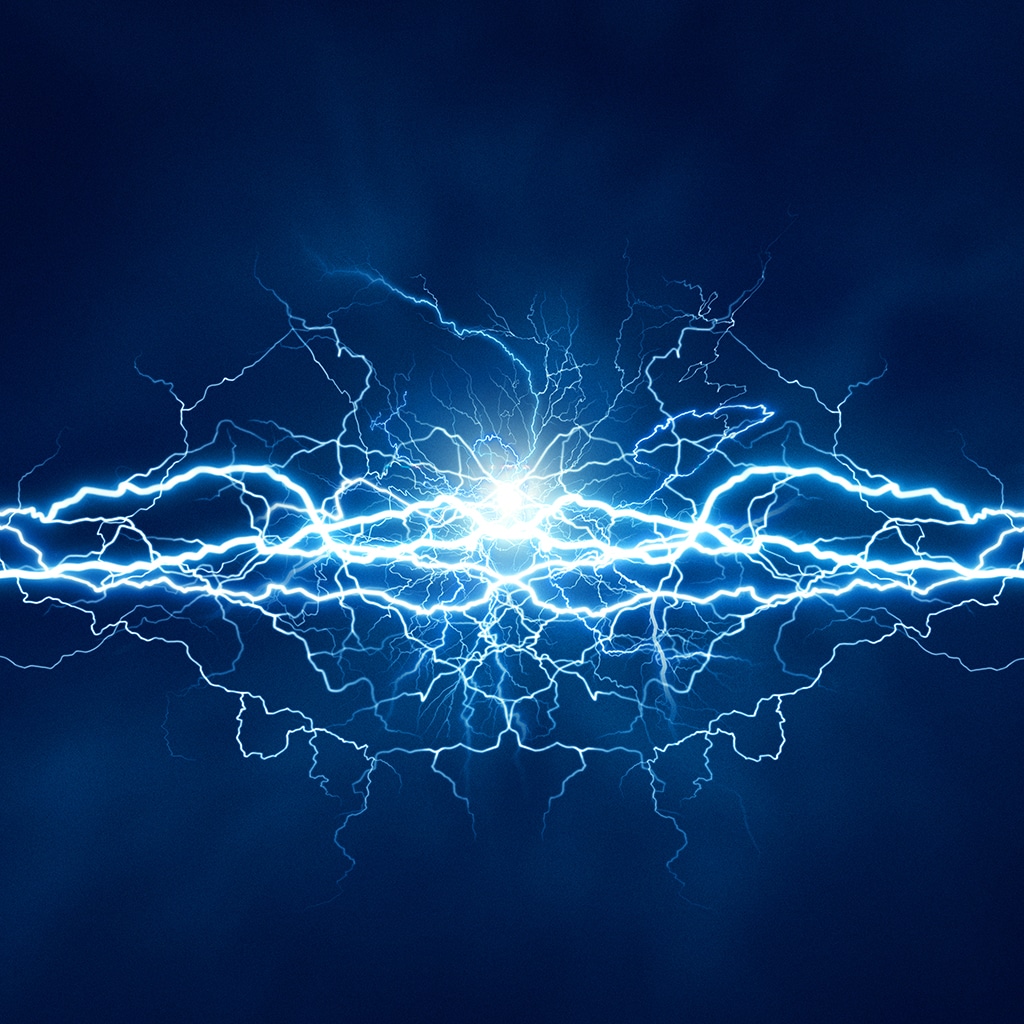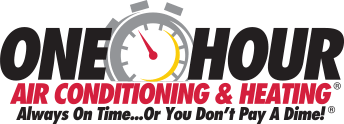
Your Air Conditioning Repair Technician’s Advice On How Electrical Power Surges Affect Your HVAC System | Dallas, TX
Do you have an HVAC system installed at your Dallas, TX, home? When was the last time you had it serviced by an experienced air conditioning repair technician? If you have an HVAC unit and need help remembering the last time you had a technician come for an inspection, it might be time to call one. Like many other home appliances, an HVAC system is also prone to malfunctions and faults that need occasional repairs.
However, you can keep these problems at bay by ensuring that you have routine air conditioning service done on your HVAC system by an experienced, licensed air conditioning repair professional. Many issues might result in damage to your HVAC system besides maintenance. One of these issues is power surges. If any electrical or electronic appliance has a power surge, many issues might arise, including a total breakdown. A power surge can damage these components and cause various problems for the HVAC system. Power surges can result in the following:
Damage to Electrical Components
A power surge in an HVAC system occurs when it tries to draw more electricity than it is designed to handle. This can cause several problems, including damage to the system’s electrical components. Additionally, power surges can burn the control circuit board in your HVAC system. The control board interprets all the signals sent by the thermostat. Hence, if this component is burned or damaged, your Dallas, TX, home will have insufficient heating or cooling. Hence, you should ask the air conditioning repair technician when they come for maintenance next time to ensure that the unit is protected from power surges.
When a power surge occurs, the excess electricity can cause the system’s wiring to overheat. This can damage the insulation on the wires, potentially leading to short circuits and other issues. Short-circuiting is the biggest threat to the electronic components of your heating and air conditioning system. It will make the transformers and capacitors blow out, rendering the entire HVAC system inoperable and necessitating AC repairs. The heat generated by the overload can also damage other components, such as the motors that power the fans and compressors.
Reduced Efficiency
A power surge in an HVAC system can reduce its efficiency in several ways. First, the excess electricity being drawn by the system can cause the system’s wiring to overheat, damaging the insulation on the wires. This can lead to short circuits and other issues, reducing the system’s ability to distribute electricity to the necessary components. This problem requires the urgent attention of an air conditioning repair technician. High electrical bills will also take a toll on your finances.
In addition, the heat generated by the power surge can damage the system’s components, such as the motors that power the fans and compressors. This can cause these components to work less efficiently, reducing the system’s overall efficiency. Finally, the power surge can cause the system to shut down or malfunction, reducing its ability to heat or cool the space it is designed to serve. This can make the space uncomfortable and increase energy costs, as the system will have to work harder to maintain the desired temperature. If your system has malfunctioned or is not even running, enlist the help of an air conditioning repair technician to diagnose the cause before embarking on the repair or replacement.
Increased Wear And Tear
Power surges occur when an HVAC system is asked to draw more electricity than it can handle. This can happen when the system runs at maximum capacity or is asked to perform more tasks than it is designed to handle. For instance, if you have a large space that needs cooling but your HVAC system has a low capacity, it might experience a power surge. Hence, it is recommended that you consult an air conditioning repair technician before purchasing one. The technician will perform a load test to determine your Dallas, TX, home’s most appropriately sized HVAC system.
When a power surge occurs, the system is forced to work harder than it is meant to, which can cause increased wear and tear on the various components of the HVAC system. For example, the motors that drive the system’s fans and compressors may have to run at higher speeds than they are designed for, which can cause them to wear out faster than they would under normal operating conditions. The compressor might also be forced to work harder, resulting in inefficiencies in your system. This will undoubtedly need the attention of an air conditioning repair technician.
In addition, the excess electrical current flowing through the system can cause components to heat up, leading to premature failure and degradation of the system’s electrical components. This can cause the system to become less efficient, which can result in higher energy bills and increased maintenance costs. When components like the capacitor blow out, they will need to be replaced as they cannot be repaired.
Reduced Air Quality
Electrical surges in an HVAC system can impact a home’s indoor air quality (IAQ). This is because electrical surges can cause damage to the electronic and mechanical components of the HVAC system, which can reduce its efficiency and ability to filter properly and circulate the air. A reduction in efficiency means that the unit will not pump enough air into your Dallas, TX, home, resulting in reduced indoor air quality.
An electrical surge can cause the circuit breaker to trip or the fuse to blow, interrupting the flow of electricity to the HVAC system. This can prevent the system from functioning properly, leading to reduced IAQ. In addition, electrical surges can cause damage to the electronic components of the HVAC system, such as thermostats, sensors, and control boards. This damage can affect the ability of the system to accurately control the temperature and airflow in a home, leading to reduced IAQ.
Electrical surges can also cause damage to the mechanical components of an HVAC system, such as the motors and fans. This damage can reduce the system’s efficiency, causing it to use more energy to produce the same heating or cooling. This increased energy consumption can cause the HVAC system to work harder and run longer, reducing the air quality inside a home. This is a problem that an air conditioning repair technician can diagnose and remedy during the repair visit.
Increased Carbon Emissions
Power surges in an HVAC system can increase carbon emissions in several ways. To begin with, a sudden increase in electrical power can cause the motor in the HVAC system to run faster than normal. This can cause the system to use more energy than usual, which can result in the release of more carbon emissions from power plants. Have you noticed that your unit is using more power than normal? Call an air conditioning repair technician for an inspection.
Additionally, a power surge can cause damage to the internal components of the HVAC system, such as the fan or compressor. This damage can cause the system to become less efficient, which can also result in the release of more carbon emissions. Finally, a power surge can cause the HVAC system to short circuit, which can cause the system to stop working altogether. This can result in the need for a replacement HVAC system, which can require producing new components and releasing more carbon emissions. All these are issues that require the attention of an air conditioning repair technician.
Reduced Heating and Cooling Capacity
One of the effects of power surges on an HVAC system is reduced heating and cooling capacity. This is because power surges can cause damage to the electronic and mechanical components of the HVAC system, which can reduce its efficiency and ability to provide heating and cooling. It would be best if you had an air conditioning repair technician replace the damaged electrical components to ensure that the heating and cooling return to normal.
When a power surge occurs, it can cause the circuit breaker to trip or the fuse to blow, interrupting the flow of electricity to the HVAC system. This can prevent the system from functioning properly and reduce its heating and cooling capacity. In addition, power surges can cause damage to the electronic components of the HVAC system, such as thermostats, sensors, and control boards, necessitating air conditioning repair. This damage can affect the system’s ability to control the temperature accurately and airflow in your Dallas, TX, home, leading to reduced heating and cooling capacity.
Power surges can also cause damage to the mechanical components of an HVAC system, such as the motors and fans. This damage can reduce the system’s efficiency, causing it to use more energy to produce the same heating or cooling. This increased energy consumption can cause the HVAC system to work harder and run longer, reducing its heating and cooling capacity.
It’s important to have a professional electrician or an air conditioning repair technician check your home’s electrical system and ensure that it is properly grounded and equipped to handle surges. In addition, installing surge protectors on your HVAC system and other electrical devices can help to protect them from the damaging effects of power surges.
Increased Noises from The HVAC System
The other problem that results from electrical power surges in your HVAC system is more noise that might necessitate air conditioning repairs. An electrical power surge can cause an HVAC system to produce noise for several reasons:
- A sudden increase in electrical power can cause the motor in the HVAC system to run faster than normal, creating a humming or buzzing noise.
- A power surge can cause damage to the internal components of the HVAC system, such as the fan or compressor. This damage can cause the system to vibrate excessively, producing a loud humming or buzzing noise.
- Power surges can cause the HVAC system to short-circuit, producing a loud popping or snapping noise.
Whenever you hear any of these noises, that is a sign that your HVAC system has a problem. There are many other reasons your HVAC system could produce noise besides the power surges. Therefore, you are recommended to have an air conditioning repair professional check it up, diagnose the cause, and fix it.
Increased Risk of Fire
Electrical surges can also cause sparking and overheating, resulting in fire risk. This is why it is recommended that an air conditioning repair technician install a surge protector that will shield your unit from the spikes. Power surges can be particularly dangerous to your Dallas, TX, home and any electrical elements. Since the HVAC system has flammable substances such as gas, you must take every other precaution to protect your home and unit from this risk.
System Failure
Electrical power surges can also result in HVAC system failure. A sudden increase in electrical power can cause the motor in the HVAC system to run faster than normal, which can cause it to overheat and fail. Overheating is also a cause of many issues that require the attention of an air conditioning repair technician. Additionally, a power surge can cause damage to the internal components of the HVAC system, such as the fan or compressor. This damage can cause the system to stop working altogether, or it can cause the system to become less efficient and eventually fail. A power surge can also result in the short-circuiting of the HVAC system, which can cause the system to stop working altogether. Hence, it is recommended that an air conditioning repair technician install a surge protector to ensure your system is protected from this problem.
It is important to prevent power surges in an HVAC system by using properly sized fuses and circuit breakers. You also should have an air conditioning repair company in Dallas, TX, regularly inspect and maintain the system. Contact us at One Hour Air Conditioning & Heating of Dallas for any air conditioning service. We offer a free estimate for all services.





